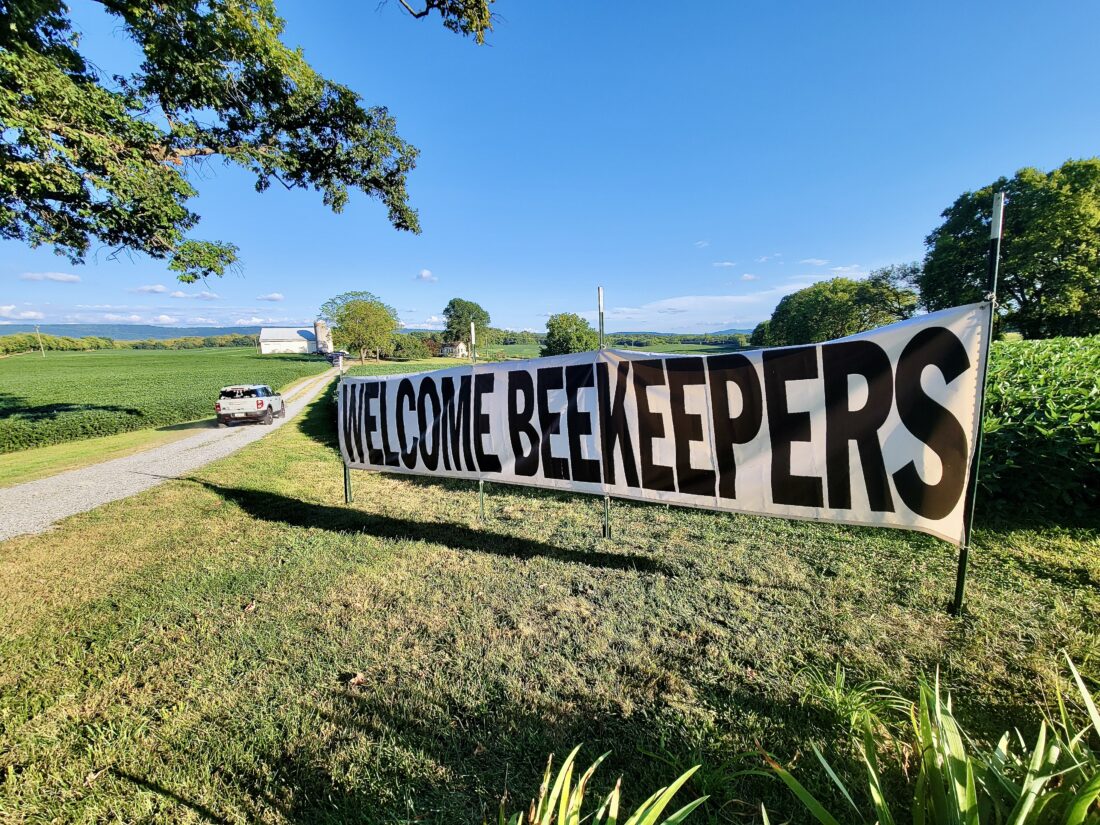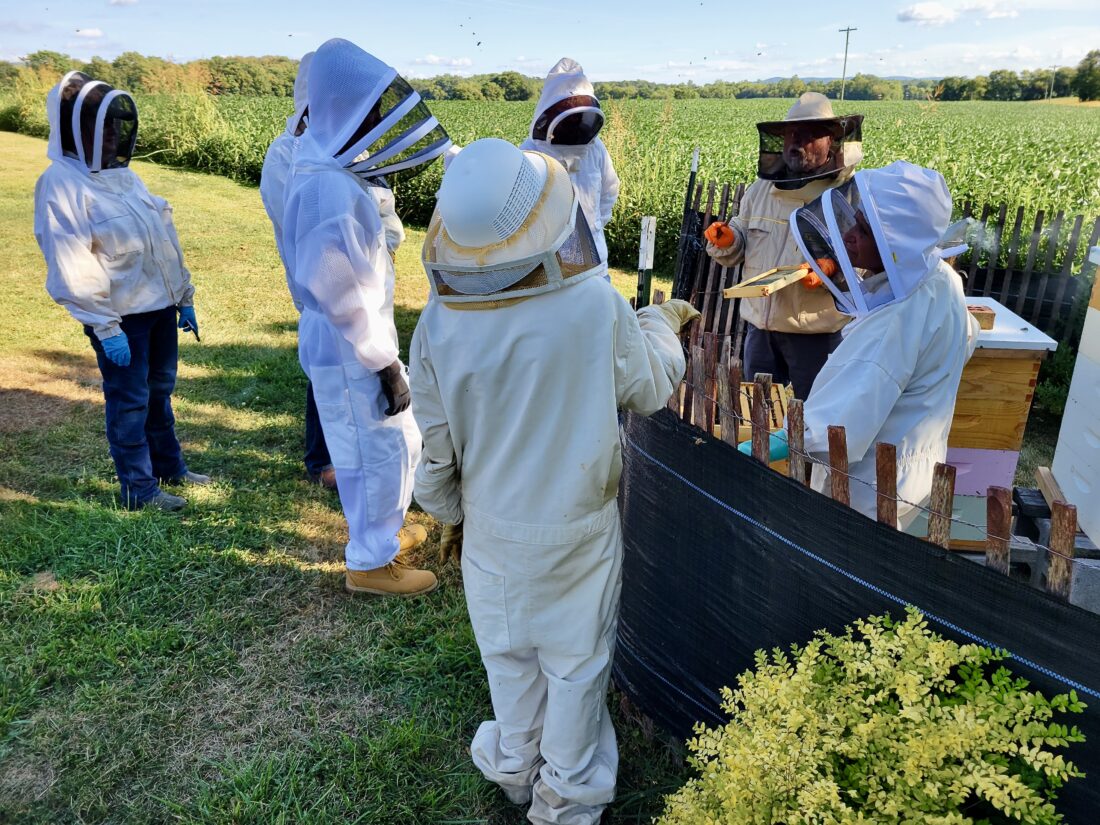Apiary inspector talks mites and more at Eastern Panhandle Beekeepers Association picnic
Apiary inspector talks mites and more at Eastern Panhandle Beekeepers Association picnic
Members of the honeybee-loving community gathered together on a farm along Engle Molers Road, for the annual Eastern Panhandle Beekeepers Association (EPBA) picnic on Tuesday night.
EPBA members Linda Layne and Gary Donely, who own the farm, offered extra beekeeping suits to attendees, especially those who were not beekeepers yet but wanted to try out the beekeeping experience. A demonstration with one of Layne’s beehives then began, as West Virginia State Apiary Inspector Rick Feagans explained what he looks for, when conducting his annual beehive inspections.
“When I do state inspections, I kind of disregard the honey, unless there’s something you want to see about it. I go down to where there’s broods — I’m looking for larva, I’m looking for if the queen’s all right. If there’s going to be disease, it’s going to be around the larva and the cap root,” Feagans said. “Generally, the first thing I look for is mites.”
He was pleased to find Layne’s hive in a healthy condition.
“I did a guy’s hive inspection yesterday — it had one percent mites. He still treated it all for them, and I would do the same thing, because you can’t stay ahead of those things,” Feagans said.

A beekeeper drives up to the Eastern Panhandle Beekeepers Association's annual picnic on Aug. 12. Photo by Tabitha Johnston
At the same time, he cautioned the beekeepers and those interested in beekeeping in attendance to not take what has become an increasingly common approach to preventing mite infestations.
“Mostly, with mites, they will be around the drone brood. I know people that cut out the drone brood from their hives, now, because they’ve heard that’s where the mites are. I don’t know if that’s a good thing — your bees won’t breed with those drones and it will mess up with their genetics,” Feagans said. “Bees will fly at least a mile away, to breed with other colonies — that’s just how they keep their genetics proper.”
Information sharing like this, according to Kearneysville resident Jack Guard, is one of the reasons he became a member of the EPBA, when he started beekeeping three years ago.
“This is a lifelong endeavor. You could spend your entire life beekeeping, and never learn all there is to know about bees,” Guard said, noting one of EPBA’s member has been beekeeping for 30 years. “If you get a group of beekeepers together and ask a question, you’ll get 10 different answers. So it’s incredibly helpful to be part of a group like this.”
Guard himself gave a presentation on how to catch bee swarms at EPBA’s monthly meeting in April, which provided Layne with the confidence and knowledge she needed to move two swarms of bees into hives this past spring — one hive which, incidentally, Feagans then used for his demonstration.

Beekeepers and potential future beekeepers crowd around West Virginia State Apiary Inspector Rick Feagans, to ask him questions during his demonstration on Aug. 12. Photo by Tabitha Johnston
“There was a swarm on my swing at the end of April. He had just done a presentation at that month’s meeting about catching swarms, so I knew what to do,” Layne said, mentioning the next swarm landed on her property the very next day. “I would not have known, if I hadn’t attended that meeting two weeks beforehand, what to do.”

대화 참여하기